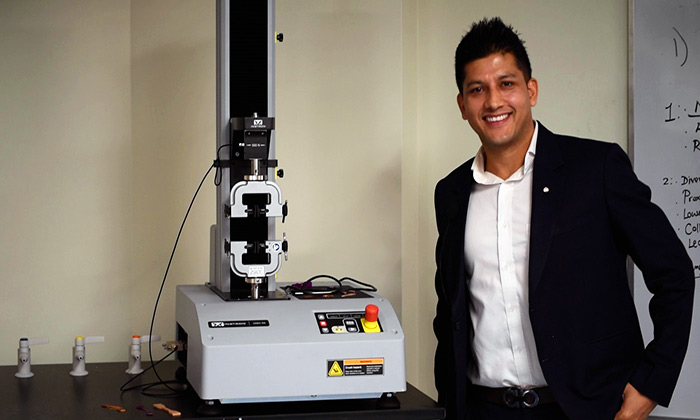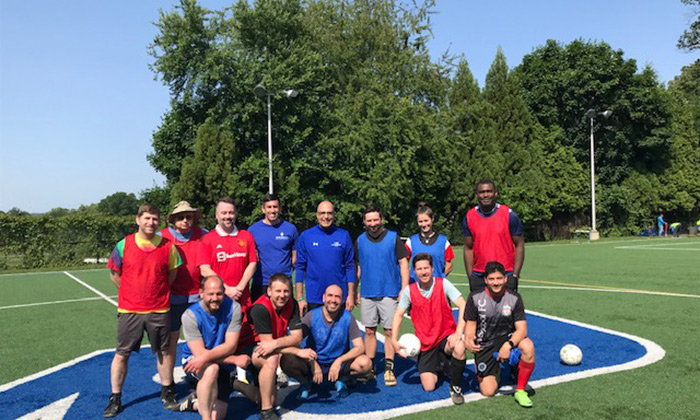In this episode of “Faculty in Focus,” we spotlight Dr. Harish Aryal, Assistant Professor of Engineering within the College of Science and Humanities. He highlights his effective teaching style, why engineering is so crucial in today’s world and his ambitious ideas for the University’s engineering programs.
What are your current areas of focus within engineering, both in your research and at Marymount?
My research lies in the intricate dynamics of heat and mass transfer, as well as fluid mechanics in nuclear-mechanical systems, which are critical for system performance and safety in nuclear engineering. Some of my current research encompasses studying the best coolant candidates among gas, molten salt and liquid metal, alongside conventional water in light-water reactors (LWR). This enables a nuanced exploration of thermal and neutronic properties, leveraging my dual degrees in mechanical and nuclear engineering.
Another aspect of my focus is fostering diversity in STEM, tailoring renewable energy projects for underrepresented groups at Marymount University and promoting interdisciplinary collaboration for comprehensive solutions.
What originally got you interested in teaching engineering?
Engineering is the foundation to meet the global needs in today’s market. It builds the students’ proper skillsets so they have a smooth transition from academia to the workforce. Engineering also plays a vital role in improving the economy. Things are improving and technology is getting robust every day, so we need engineering in almost every aspect of life, as well as a holistic approach to tackle problems in our world today.
How has your teaching style changed over the years?
Project-based learning is a driving force in how I teach — it enhances teaching instruction. In July 2023, I actually presented a paper in Switzerland about the benefits of project-based learning. In my class, we apply this type of teaching by creating modules that help teach the fundamental basics of engineering.
I have also used mid-semester correction assessments over the last several years of teaching. We usually evaluate students at the end of the semester, but sometimes it’s too late for them to improve their grades. This way, students can get feedback on what is or isn’t working for them and how they can improve.
What are some essential engineering skills that are important to teach?
As an engineer and educator, teamwork is important. Engineering involves analytical skills and problem-solving — specifically, why we are solving these problems. Ethics is important as well, as there must be some ethical reasoning behind what you are designing for safety and sustainability for the future.
What techniques do you use in your classes?
Instead of just simply solving problems, I want to know why we are solving those problems and build real-life applications from that. For example, if I was teaching a dynamics course, demonstrating a ballistic pendulum in class would give students ideas of the principles. Of course, math and physics are important, but understanding why these principles work is equally important.
I am also a fan of technology so I integrate it into classroom settings — for instance, I add simulation videos of power plants that would help students answer complicated equations. Using PowerPoint, video and pictures gives better insights into the problems presented in class. I also invite students who are interested in the research aspect of engineering to apply what they learn in the classroom to build some tangible products. Additionally, I connect with students through sports because I am a big fan of soccer, basketball and baseball. It creates a very constructive environment in class.
What do you hope to contribute overall to Marymount’s new engineering programs?
We are seeking to build a research hub so everyone from multiple disciplines (cybersecurity, business, engineering, technology, etc.) can benefit. Since our engineering programs are growing from the ground up, we are looking to enhance our existing lab equipment. My background fits with thermal hydraulics and studying heat transfer and mass flow in mechanical systems, so we are looking for a grant for infrastructure development and hope to get a thermal fluids lab set up within the next year if everything goes as planned.
Additionally, I want to create some project-based learning tools for classrooms and summer camp research projects. I also hope to submit for multiple grants, which would create more support for us to explore and research. This would lead us to national and international publications, which would be a great start.






